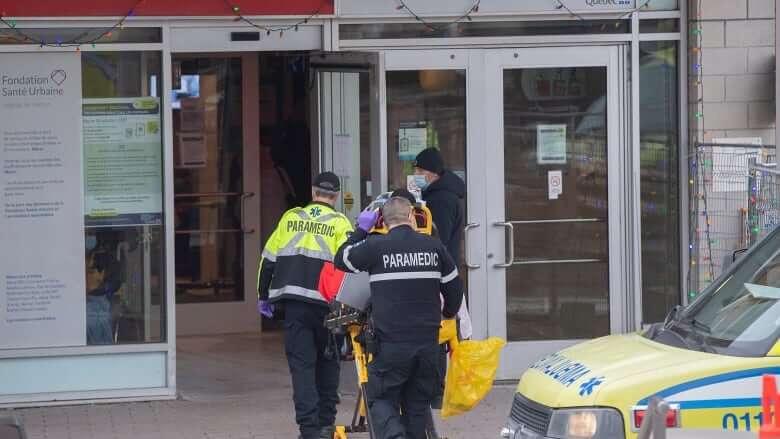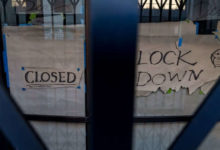Montreal reinstates state of emergency due to rising cases, Omicron variant

The City of Montreal has declared a local state of emergency in an effort to curb the spread of the Omicron variant of COVID-19.
Montreal Mayor Valérie Plante, who recently announced she tested positive for COVID-19, made the announcement Tuesday at a virtual news conference.
Cases are rising sharply across the province, with Quebec reporting yet another new daily record of 5,043 cases. Montreal alone accounted for 1,656 of them.
Plante said the state of emergency will allow the city to react quickly to a changing situation.
“We will be able now, with the state of emergency, to be proactive. We are more in charge, if I can say, in some decisions,” she said.
Plante said the state of emergency will be used to quickly procure protective equipment for the city’s essential workers, and prepare sites and facilities to accommodate Montreal’s homeless population.
“With the number of cases going up with the Omicron variant, we want to be ready if there’s an outbreak in a shelter, for example,” she said. “We will need to isolate people, we will need more beds, more sites.”
Plante also announced that the city will be doubling funds to address homelessness in Wednesday’s budget. She said the city is currently short about 100 shelter beds.
Previous state of emergency was lifted in August
This marks Montreal’s second state of emergency during the pandemic.
The city had previously declared one at the start of the pandemic but allowed it to expire in August, citing high vaccination rates and the implementation of the vaccine passport system.
Plante said she does not regret letting the state of emergency lapse, saying it should not be used as a permanent solution.
Under Section 42 of the provincial Civil Protection Act, a municipality may declare a local state of emergency, in all or part of its territory, when a major disaster, real or imminent, requires extraordinary measures to protect human life.
The Quebec government also declared a state of emergency at the start of the pandemic, but has maintained it since, despite criticism that officials were refusing to relinquish their emergency powers.
Quebec Premier François Legault tweeted Tuesday that the government was considering tightening restrictions further, just one day after announcing sweeping measures that suddenly closed schools, bars and movie theatres.
When asked about the possibility that Quebec could reinstate a curfew, Plante said she had not spoken to her provincial counterpart about it.
“If the government of Quebec and public health choose to put in place a curfew, they need to consider our most vulnerable: those experiencing homelessness,” she said.
Last winter, Raphaël Napa André, a homeless man from the Innu community of Matimekush-Lac John, was found frozen to death in a chemical toilet in front of a shelter that had been forced to close its doors at night.
“We want to ensure that a curfew wouldn’t penalize [the homeless population] further.”
Plante doing ‘better’ after COVID-19 diagnosis
Speaking to reporters from her home, Plante said she still had low energy following her diagnosis of COVID-19, but felt overall her condition was improving.
She hoped her case could be a cautionary tale to Montrealers.
“I think I’m a good example of somebody who did everything that has to be done, respecting all the rules and everything, and just got hit by the variant,” she said.
“That’s why I’m speaking with experience, with my heart, when I tell Montrealers to be very vigiliant,” she said. “It is a very, very contagious variant.”








Redes Sociais - Comentários